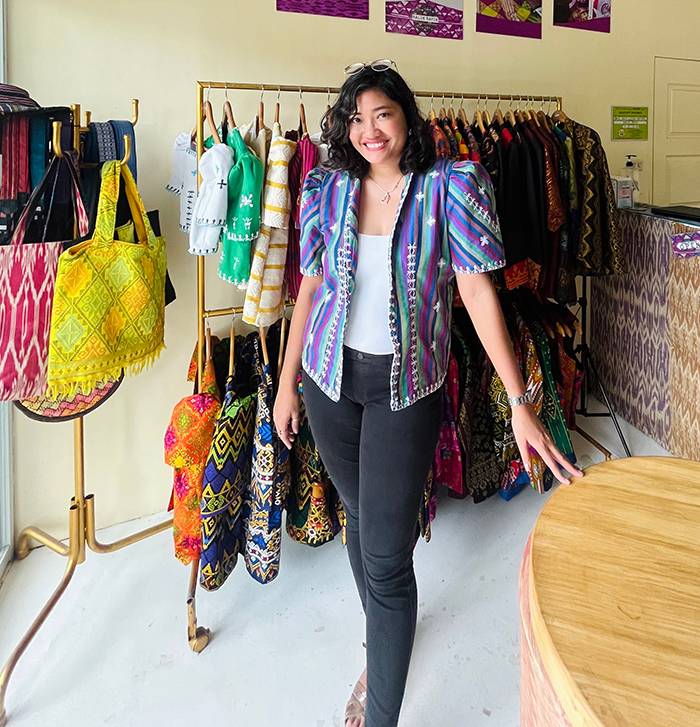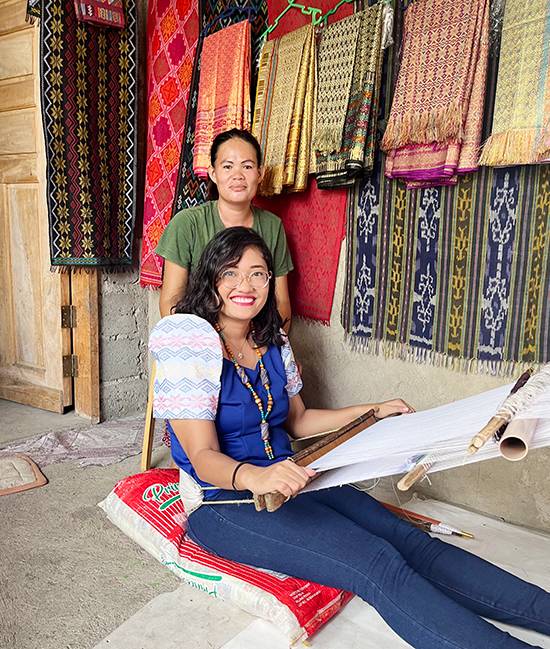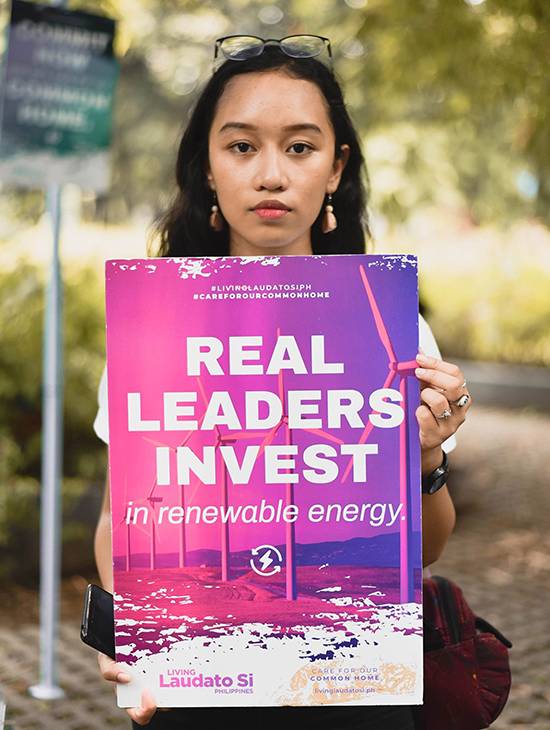The hometowns that define us
Veronica Baguio likes to follow her introductions with the phrase, “…but not from Baguio!” to help her break the ice. The small coastal town of Liloan in Cebu is, in fact, her hometown and point of pride—a place woven into her identity and story. “There is so much identity to Cebu that it’s easy to engrave that into who I am,” she said.
She admits that she ticks almost all the boxes of Cebuano clichés: she grew up going to Sinulog every year, she loves beaches, she can eat lechon every day, and she can knock back multiple servings of puso in one sitting. She even loves her hometown’s tagline, “Live, Love, Liloan.” “It’s cheesy, but I love it.”
But her upbringing isn’t just an origin story for her traits and quirks. Cebu, a melting pot in the middle of our country, gave her the superpower to talk and relate to anyone, no matter what part of the country they’re from. “Cebu is called the Queen City of the South, but if you look at the map, we’re kind of in the middle of Luzon and Mindanao,” she said. “I like bringing everything together. Having that exposure to Mindanao and Luzon and bringing it together in Visayas just makes sense to me.”

It all started during a trip to Davao City, where her affinity for wearing bright colors led her to the local Batik blazers. She tweeted for her friends in Cebu who would want to “pasabuy,” and ended up gaining thousands of likes from non-friends from non-Cebu. As a psychology major and a vice principal, she quipped that that was her initial and only market research, and that now her business mostly just “operates on vibes.”
From then on, she fostered the online presence of Balik Batik and grew it into a social enterprise that ultimately promotes Filipino artistry and weaving. Their products—a variety of Filipiniana, barongs, blazers, skirts and more—are made and crafted by indigenous weavers, artisans and designers from all over the country. She works with around 15 indigenous groups and weaving communities. More than promoting their products, the social media pages of Balik Batik are dedicated to sharing obscure knowledge on weaves from different parts of the country.

One question she got a lot about their products was, “Bakit ang mahal?” While this is an understandable inquiry, Veronica offers the truth about the diligence of these weaving communities. “I have a term for this: it’s handwork and hard work. It’s handwork because it’s a lot of hand movements, and it’s hard work because it’s really difficult to do.”
She says: “I’ve woven in Zamboanga, Bohol and Tugaya. I was in Marawi recently and we had soldiers to accompany us, but we tried weaving and it was hard. I asked them, ‘Ma’am, are we paying you enough?’ And she laughed at me because I was messing it up,” she recounted. “There are so many processes. It takes a lot of time, effort and people. It’s not just women who are involved, but also the men in getting the materials. That one fabric that you see? It’s a whole community effort to get that.”
And it’s generational. “They have been passing this on from generation to generation and they make such beautiful things. I really find it an honor to be able to work with them and see their work in person because I wish more people would see it. I always feel like I was put in this position to amplify their work because they have their own voice, they have their own say. Our job is to give them a bigger platform through fashion, through clothes.”

Krishna Ariola hails from Bacolod City, Negros Occidental. Though Bacolod is now an urbanized city, Krishna’s proximity to natural areas since childhood has strengthened her roots in climate and environment activism. Most of her fond memories were set in the beaches, waterfalls, farms, forests and even mangroves that surrounded and filled her hometown. But as she grew up, so did Bacolod.
“As the city grew, our experiences shrunk,” she shared. “What was intrinsic to my childhood was my experience in nature. But now, it seems exclusive. It seems like something we can only have when we deserve it.”

She adds: “I’ve always seen nature as home, not as an escape. But somehow, it has evolved to become that because it has gotten sparser.”
Growing up in nature was a formative experience for Krishna, but witnessing its exploitation was ultimately what guided her and her sisters into the cause they are passionate about. She first protested during her senior year in college for the conservation of Northern Negros National Park and the implementation of the plastic bag regulation law. Later in the year, she joined forces with fellow Negrenses to oppose a proposed 300-megwatt coal plant and to advocate for a Coal-Free Negros.
The fight for climate and environmental justice is constant—the collective she was part of soon became Youth for Climate Hope. “Nakita namin how it all interconnects. All of this is because there is an ongoing climate and ecological crisis. We cannot solve a problem without going to its roots.”
Today, she is the founding convener for the coalition in Negros Occidental as they continue to advocate for intersectional solutions. Youth for Climate Hope has since consistently participated in the resolution of environmental issues in the province. “If we learned anything, it is that real, genuine change and monumental victories do not happen in international climate conferences or legislation halls. It can only be won by the people who know that the real power lies with us, those who know the depths and realities that this crisis brings to the most vulnerable.”
To fellow Filipinos who want to join in the fight for climate and environment justice, Krishna advises: “If you operate in fear, guilt or despair, that can be draining and can lead you to burn out. You have to realize that because the struggle for climate and ecological justice is so complex and it’s all interconnected, it cannot be done in isolation. It means that there are so many people out there that you can reach out to. There is always a place to start, we only have to find each other.”
She adds: “We have to keep fighting because the future is not something handed down to us; it’s something that we shape. The people in power are not going to overhaul the system that benefits them. We have to realize that we are the ones that hold the power. We only have to find each other to move as a collective, to create a force, and to really spell out what justice means to us. Justice cannot be defined by people who do not know the realities of our struggles. Justice can only be defined by the frontliners of it.”


